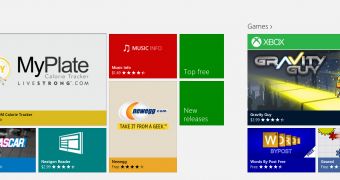Just like it happened with all the other Windows versions when they got released, Windows 8 has quickly become an attractive target for software pirates who try to get paid Store apps at absolutely no cost. And they actually managed to do it using a technique described in detail by a Nokia engineer.
But cracking Windows 8 applications is a bad thing for your computer, Microsoft said several times in an attempt supposed to encourage users to stay away from such a practice.
A company spokesperson informed us via email that compromising the integrity of apps “can have lots of negative consequences to the system and the customer experience.”
A forum post on the Windows Dev Center, however, tries to help developers create harder to crack applications, while also providing information on the existing attempts to “circumvent the Windows licensing system to get apps for free.”
“When an attacker wants to get access to a wide set of apps for free, or circumvent existing licensing restrictions, they may attempt to hack Windows directly. This strategy requires an individual to use their administrative privileges to replace or modify the behavior of Windows system components,” Team Manager of the Windows Store Developer Solutions team, Dan Reagan, explained.
“When a user makes this decision, it often has implications well beyond the ability to acquire apps for free. The download packages that enable these exploits often carry malicious payloads that have significant adverse effects such as system instability, personal data loss and reduced performance.”
Surprisingly, the technique revealed by Nokia’s engineer still works at the time this writing, but Microsoft is expected to issue a patch and block future attempts anytime soon.
Microsoft claims that most users are actually trying to hide advertisements and gain access to locked content available to those who pay for a license.

 14 DAY TRIAL //
14 DAY TRIAL //